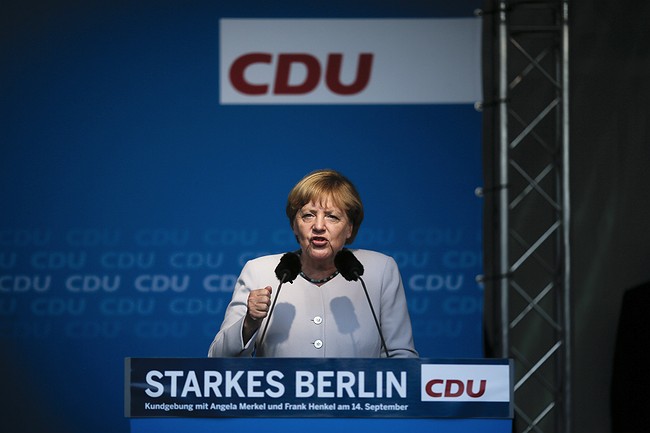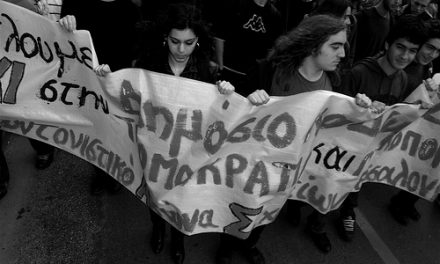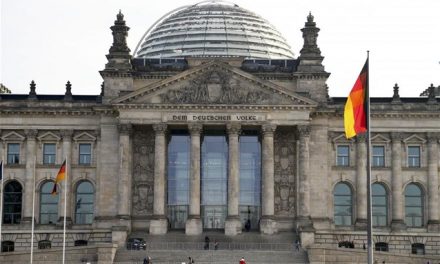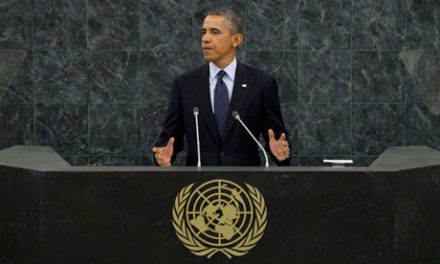By FAISAL AL YAFAI, Asia Times
The announced departure of Germany’s first female chancellor was as unexpected and stealthy as her arrival 13 years earlier. In a brief speech at the end of last month, Angela Merkel announced she would not seek re-election as chancellor and would not stand for her party’s leadership next month. The era of “Mutti” Merkel, as she is popularly known, from the German word for mother, is coming to a quiet, un-flashy end.
Defining Merkel’s domestic legacy will not be easy, because it is intimately tied up with her responses to major crises that have beset Europe. Defining her legacy in the Middle East is equally tricky, because of how low-profile she has been on foreign policy.
But one aspect that must be part of both discussions is her decision, at the height of the migrant crisis in 2015, to keep her country’s borders open and allow more than a million people to claim asylum. That decision had enormous domestic and international repercussions. It forced every European country to justify its response, and profoundly impacted European publics who were already disillusioned with the institutions of the European Union.
It also had repercussions across the Middle East, sparking first a discussion about the number of refugees countries in that region were taking in, and then a further discussion about the amount of aid being offered by Western countries to those Middle Eastern countries that were hosting the bulk of the refugees.
But it is perhaps more notable for what it did not accomplish. Such a pivotal decision, one that will be debated by historians in both regions for decades, did not cement her position as a great leader. Merkel made one of the hardest decisions of her time in power, only to find few followers.
Future historians will have to search hard for a coherent set of policies that make up “Merkelism.” The chancellor has not demonstrated that she had a great vision for Germany’s domestic or foreign policy. She was more of a manager – as one of her biographers put it, her answer to every problem is “to sit it out.”
All the more remarkable, then, that during the Arab Spring, Merkel made the single most pivotal decision by a Western leader. No decision by a Western leader was so consequential – the only thing that comes close is Barack Obama’s refusal to enforce his own “red lines” over chemical-weapons use in Syria. And this, after all, from a woman who rarely took a stand on affairs at home or abroad until the political wind was clear.
Merkel said nothing about the Arab uprisings until after Egypt’s Hosni Mubarak was toppled. She refused to join the North Atlantic Treaty Organization mission in Libya. And even as Turkish President Recep Tayyip Erdogan became more unpopular in Germany, she only rarely criticized his actions in Syria.
Over the migrant crisis, however, Merkel showed true leadership. In the face of domestic opposition, she recognized that the scale of the crisis – the largest migration of people in Europe since World War II – required a response that went beyond day-to-day politics. Yet Merkel rarely is lauded for it, and that decision – historic in its consequences – is still not seen as evidence of leadership. Somehow, in the moment when she tried most to lead, she found few were willing to follow her.
The answer to why lies both in Europe and in the Middle East. Because not only did Merkel find few followers in Europe, she also found few next door. Divisions in the region made it difficult for Middle Eastern countries to support any particular solution for the migrant crisis, let alone propose one. Over the migrant crisis, as over too many other issues, there was no Arab consensus, no set of policies that countries of the region could coalesce around.
And neither Merkel nor Germany could create one. Although she was once called, after Donald Trump’s election as president of the United States, the new leader of the free world, Merkel has rarely acted like it. She has led Germany but not the continent, in part for political reasons: Germany lacks the military heft to lead Europe and has the historical baggage not to try.
But it is also personal. For many years, in particular over the financial crisis of a decade ago, Merkel was criticized for not being ambitious enough for Germany, for taking a managerial approach to a country that was very obviously Europe’s powerhouse. Yet after so many years underestimating Germany’s power, in the case of the migrant crisis, she overestimated both its and her own.
Had an American leader taken such a bold step, it is possible it would have redefined how the crisis was seen, elevating it from a crisis for individual nations to one of historic proportions. It is conceivable that there would have been a grand plan, as there was after World War II, and even buy-in from Middle Eastern countries. It is possible to imagine an alternative history whereby the migrant crisis knitted together Europe and the Middle East instead of dividing both.
That it didn’t happen is partly down to Merkel herself. Henry Kissinger once observed that Germany was fated to be “too big for Europe, too small for the world.” Over the migrant crisis, at her moment of global statesmanship, Angela Merkel proved too small to lead the Western world.



















